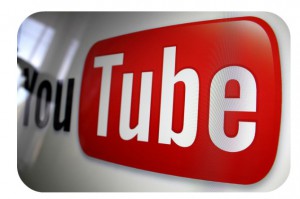 As sales from CDs and digital downloads continue to decline, streaming platforms like Spotify and Apple Music have become vital to the $7.7 billion music industry. Still, there’s one major streaming service that both executives and musicians alike have long despised. While it’s mostly known for video, YouTube accounts for 25 percent of all music streamed across the globe. This makes it by far the most popular streaming site among fans, a fact that industry insiders find increasingly troubling.
As sales from CDs and digital downloads continue to decline, streaming platforms like Spotify and Apple Music have become vital to the $7.7 billion music industry. Still, there’s one major streaming service that both executives and musicians alike have long despised. While it’s mostly known for video, YouTube accounts for 25 percent of all music streamed across the globe. This makes it by far the most popular streaming site among fans, a fact that industry insiders find increasingly troubling.
Services like Spotify and Apple Music work closely with record companies when adding music to their libraries, allowing labels to collect royalties when their songs are streamed. At Youtube, though, users can upload anything they want. As a result, over the years millions of songs have found their way onto the site without their copyright holders’ knowledge. Although musicians could have songs removed if they complained to YouTube, their work would often just reappear again from a different user. YouTube eventually developed its Content ID system that automatically compares newly uploaded songs with a database of trademarked tracks. The site says it captures 99.5 percent of previously claimed songs using this system.
But unauthorized uploads aren’t the only matter that angers the music industry. Executives and musicians claim that YouTube relies on its user-generated content model as a legal loophole to avoid paying artists what they’re owed. Spotify, for instance, pays a rate of about $7 for every 1,000 plays a song receives. Experts estimate that labels earn only $1 per 1,000 plays from YouTube. A manager for one major artist said that YouTube accounted for 33 percent of her total streams but only 10 percent of her streaming revenue. According to record labels, this “value gap” causes musicians to lose out on royalties that they rightfully earned. Later this year the European Union is expected to release new rules that regulate how sites like YouTube operate their streaming services, potentially closing this value gap for good.
Questions:
- Should YouTube pay record labels at the same rate as Spotify for streaming songs?
- How could new regulations from the European Union affect YouTube’s streaming business?
Source: Todd C. Frankel, “Why Musicians Are So Angry at the World’s Most Popular Music Streaming Service,” The Washington Post, July 14, 2017. Photo by Rego Korosi.
